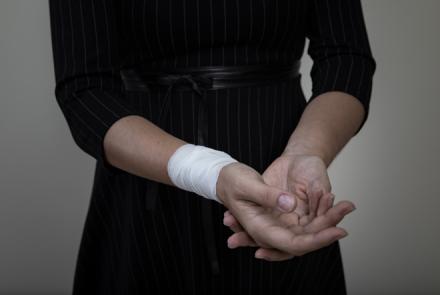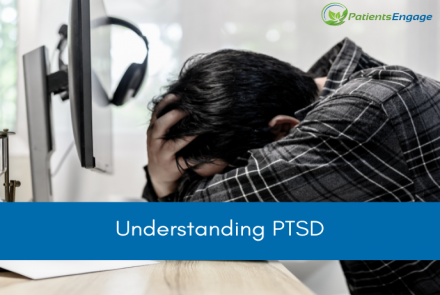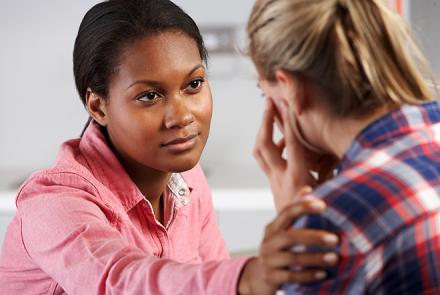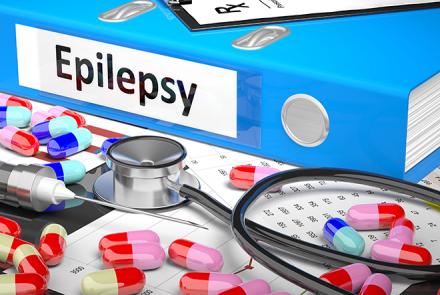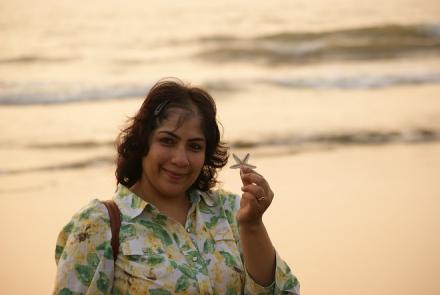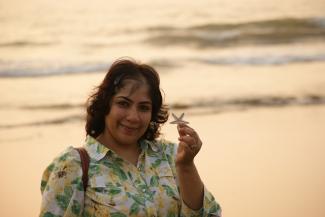
Anxiety disorders can be disabling and dangerous, if left untreated or suppressed. Smriti Sawhney, an experienced Clinical Psychologist, emphasises the importance of identifying anxiety triggers early and nipping it in the bud either on your own or with professional help before it becomes irrational and cripples your daily routine.
An estimated 264 million people in the world are living with anxiety disorders. That is a lot of people, but not everyone is seeking help to treat their anxiety. Statistics show that only one third of people who have anxiety disorders are getting adequate treatment.
Reasons for Untreated Anxiety
There may be many reasons why anxiety sufferers may not seek help. It could be because they are afraid of what family, friends or co-workers may think. Or they may be in denial of how detrimental their anxiety has become. Still others may not understand that there is help and treatment out there for their anxiety related issues. In fact, the biggest reason is that a lot of people are unable to see or comprehend the distress caused by anxiety as purely psychological; rather it is the somatic symptoms of anxiety which are more visible and acceptable that sometimes pushes people to visit their general physicians.
Each one of us has experienced anxiety at some point in our life -- before an exam or while on the first date or sometimes when there is just a gnawing feeling that something catastrophic is going to happen. Let’s understand what exactly happens in the brain when anxiety strikes, how it impacts us, and then what we can do about it. Scientists have identified the actual pathway between our thinking brains and the organs responsible for managing our stress response, confirming the existence of a mind-body connection. So anxiety and even depression is very real and definitely not just a fragment of one’s imagination.
Good Anxiety, a Blessing
Actually, we should consider anxiety a blessing, especially ‘good anxiety’ also called ‘eustress’. Good anxiety serves a protective function for us. Each time we encounter something we perceive as threatening to us (body or ego or emotions) say, when our ancestors would go hunting and would suddenly encounter a lion, this system in the brain would get triggered and activate a fight-or-flight response. This means that we have the same surge of adrenaline, cortisol, and norepinephrine each time we encounter a stimuli we consider stressful or anxiety arousing, whether it be an injury, a verbal attack, exercise, or anxiety about a future event.
But this would not get triggered, say for instance, when we have just finished running a race. Despite being stressful leaving you with a pounding heartbeat and shaky knees, the race does not cause anxiety as it is considered an achievement, an accomplishment. An interesting fact is that positive or negative stress has less to do with the actual event or information we experience and more to do with our perception of the event.
Cognitive distortions can produce anxiety
Even though these very different situations require different responses, our body’s chemical processes treat them at par. So sweaty palms and a rapid heart-beat before an exam or feeling dizzy and breathless before entering a lift (because maybe you have had one experience of getting stuck in a lift and you feel you would get stuck inside and then ….) are really signs of anxiety. Remember, the onset of an anxiety always manifests itself in the body first --tensed muscles, twitching, frequent urination, feeling like the heart is sinking, etc. are all physical signs of anxiety. What follows is your interpretation of these signs as catastrophic; and each time you think about facing that stimuli, the catastrophic thoughts and physical signs would show up. There's also the cognitive theory, which suggests that anxiety arises when a person's cognitive distortions, or irrational thought patterns, make them see everything as a physical threat, whether it's an actual physical danger, a spider, or a police officer on the side of the road. The behavioural theory explains anxiety as learned response due to exposure to frightening or stressful situations.
Imagined Anxiety Triggers
What is happening in case of anxiety disorders is that this fight-and-flight response doesn’t get disengaged once the perceived threat or stressor is removed. The body and the mind are then constantly vigilant and on a high alert of encountering the trigger – real or imagined, thus constantly in a fight-or-flight mode which means constant panic or restlessness, worrying thoughts , disturbed sleep and appetite leading to a pretty disabling exhausting state.
Seek Help Early
So now, we know that it’s not all in the head and it can get very discomforting and disabling for someone who’s experiencing it. Seeking help should be one of the most important steps to dealing with disabling anxiety and even better is knowing your triggers and associated signs and symptoms your body begins to show in presence or even anticipation of your triggers so as to catch it early and nip it in the bud.
Trying to avoid your triggers of anxiety is called avoidance which is a unhealthy coping style as then a part of you will always be on the lookout for “what if” situations. Supressing anxiety isn’t good too as the more you try not to think of the big Bengal tiger that has the loudest roar, with your eyes closed, more the chances of your thinking about it.
Anxiety is a normal and necessary emotion that is there to help us survive real threats like a fast approaching truck we see when crossing the road. The key is to identify “irrational anxiety thoughts and triggers”.
Anxiety can be managed with preventative measures like –
- Exercise
- Mindfulness based meditation
- Challenging the rationality of the anxiety-provoking thoughts (like CBT -Cognitive-Behavioral Therapy or REBT - Rational Emotive Behavior Therapy does) on your own or with a professional.
So if you know someone or you yourself are battling with anxiety, remember its controls are in our hands. With early intervention and the right guidance, one can cope effectively with any anxiety arousing situation or an anxiety disorder.
Related Reading: 12 Tips to Relieve Anxiety and Depression


